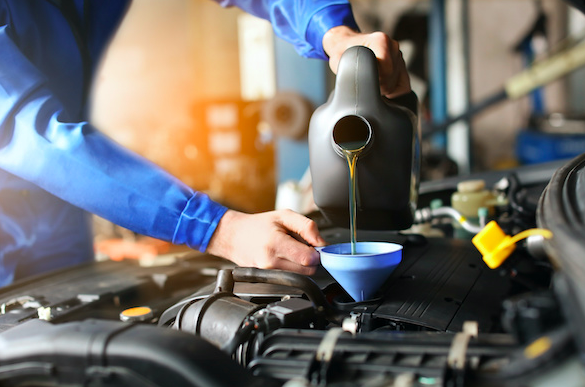
Oil is a crucial aspect of your vehicle because it decreases friction inside the engine. High quality, clean oil expands your vehicle’s lifespan by reducing corrosion. It also prevents critical engine components from rubbing together.
Your engine oil becomes dirty and contaminated over time. With regular wear and tear, the oil becomes less effective. If it’s not fixed, with time, significant engine damage and other mechanical failings will occur. While changing your engine oil is one of the most straightforward maintenance tasks, some drivers may still procrastinate or forget to do them.
Below are five significant signs you need an oil change:
Your motor oil is dark and dirty.
If you pop the hood and remove your dipstick, the engine oil should be a bright amber color. If your oil is black, it’s time to get an oil change.
You notice a strong smell of burnt oil.
A burnt oil smell inside your car cabin is a major indication of an oil leak. If there’s an oil leak, your vehicle can overheat and drip oil into hot engine parts. If you’re noticing a smell, also check for blue or gray smoke coming from the exhaust. The exhaust smoke comes from not having enough oil to lubricate your engine parts.
Strange sounds or metal noises are coming from the engine.
If your engine isn’t lubricated properly, it will make various, unusual metal ticking or tapping sounds.
A decrease in fuel economy.
If your engine oil is dirty or too thick, it will cause the moving parts within it to be met with lots of resistance. Your engine will end up working harder and using more fuel to operate it.
Your engine warning illuminates on the dashboard.
Modern vehicles are now equipped with sensors to alert you of a problem.
How often should you change your oil?
You should change your oil on the maintenance schedule based on what your vehicle’s manufacturer recommends. Do not wait until your engine light comes on, or you’re noticing leaked oil. It’s vital to stick to regular mileage intervals. Older vehicles may run best at an oil service of every 3500 miles, while newer vehicles may need a service scheduled every 7,000-10,000 miles. All cars and drivers are different; we’d be happy to discuss the type of oil change schedule for your vehicle. If you don’t have your owner’s manual, don’t hesitate to bring your vehicle into Elite Auto Experts.